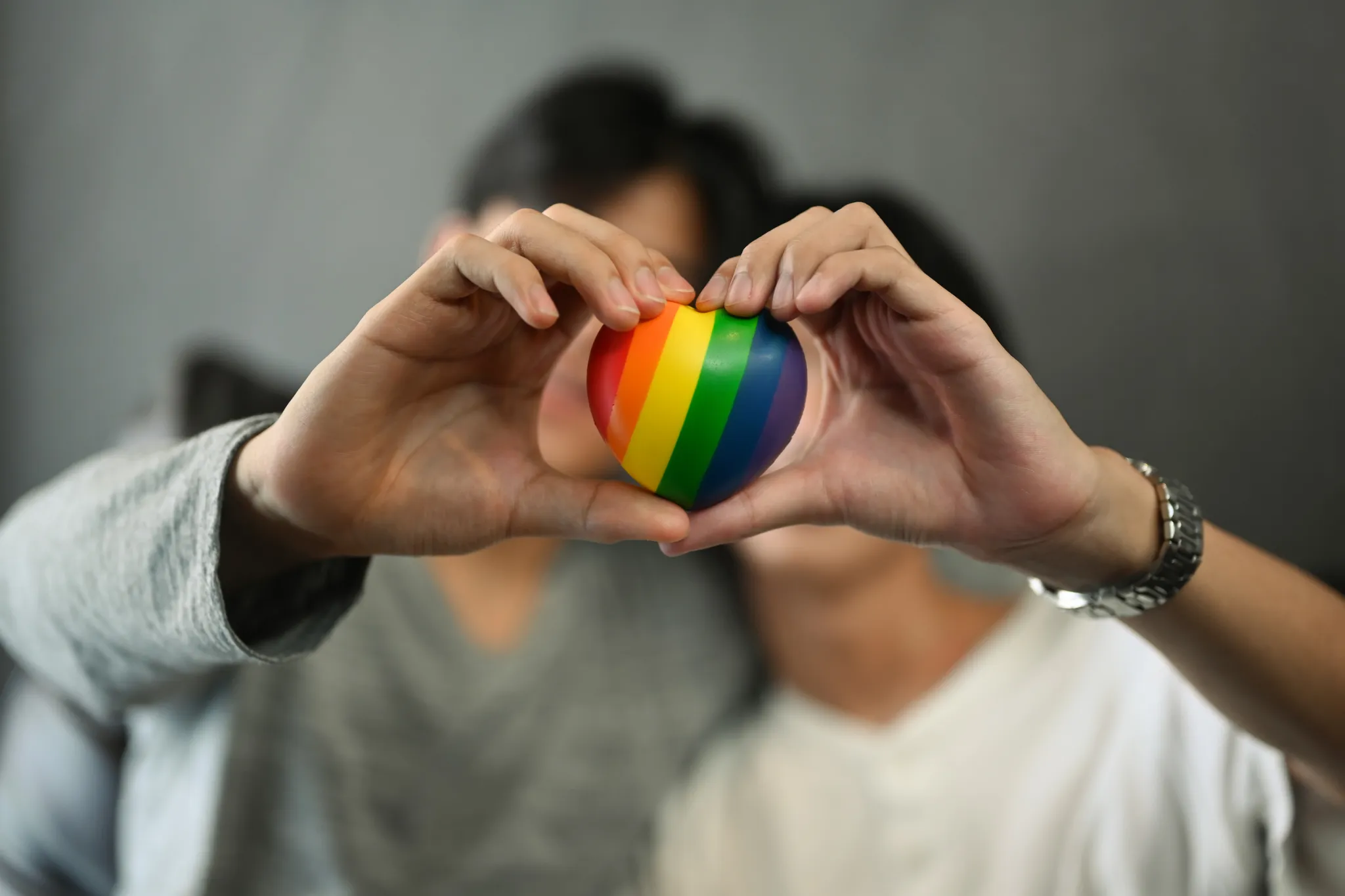Disclaimer: Opinions expressed in this commentary are those of the author and do not necessarily represent the institutional position of International IDEA, its Board of Advisers or its Council of Member States.
Explainer: Advances in LGBTQIA+ rights across Asia and the Pacific

The Asia Pacific region has seen significant victories in the fight for LGBTQIA+ equality over the past decade, particularly in the past year. Recent milestones include same-sex marriage registration in Nepal, adoption rights for same-sex couples in Taiwan, and the decriminalization of gay sex in Singapore. A series of court wins reflects years of hard-fought efforts to promote LGBTQIA+ rights across the region, albeit much remains to be done.
Where do LGBTQIA+ rights fit into democracy?
Democracy is based on the principle of equality; every person in a democratic system has equal rights to and opportunities for a dignified life. A fully-fledged democracy cannot exist if LGBTQIA+ persons (or any community) are not treated equally under the law and afforded the same protections as heterosexual persons. Indeed, a seminal indicator in the Global State of Democracy’s framework is Social Group Equality, which measures discrimination and exclusion based on sexual orientation (See Figure 1).
Denying same-sex couples the right to marry or engage in same-sex acts not only perpetuates stigma and discrimination but also excludes persons from important legal and social benefits such as healthcare coverage, tax advantages and parental rights, to name a few. Marriage equality and decriminalization of same-sex acts are often considered bellwether benchmarks of progress towards inclusivity with the potential to catalyze the full realization of LGBTQIA+ rights.
Figure 1: Global State of Democracy Conceptual Framework and relevant indicator
What is the current state of LGBQTIA+ rights in the Asia Pacific region, and how have these rights developed over time?
Only 8.6 per cent of countries in Asia Pacific perform at high levels in V-Dem’s Power distributed by sexual orientation variable, with most countries performing either at mid or low range levels.1 In a global context, both Europe (57.8 per cent) and the Americas (29.6 per cent) boast the most high-performing countries in this regard. In Africa, 9.6 per cent of countries are high-performing, and Western Asia has no countries that perform in the high range (See Figure 2).
Additional data sources that measure the adoption and implementation of LGBTQIA+ policies i.e., the decriminalization of same-sex relations, marriage equality, hate crime protections, and gender marker changes etc. identify New Zealand, Australia, Thailand, Taiwan and Nepal as countries in the Asia Pacific region with the most progressive LGBTQIA+ policies. In contrast, Malaysia, Afghanistan, Maldives, Indonesia, and Uzbekistan are highlighted as having more regressive LGBTQIA+ policies.
Notably, 24 of 35 countries in the region have legalized consensual same-sex acts, paving the way for further legal reforms like same-sex marriage. To date, New Zealand, Australia, Taiwan - and most recently Nepal - are the only countries in Asia Pacific to have legalized same-sex marriage, doing so in 2013, 2017, 2019 and 2023, respectively.
What are the recent signs of progress for LGBTQIA+ rights in Asia Pacific?
International IDEA’s Democracy Tracker has noted several significant advances in the past year:
- In June 2023, Nepal became the first country in South Asia to order legal registration of same-sex marriages, with legislation expected to follow. The interim order builds on previous judgements recognizing the rights of LGBTQIA+ persons, most recently brought to light in May when the court ordered the government to legally recognize the same-sex foreign spouse of a Nepali citizen.
- In January 2023, Taiwan took steps toward full marriage equality by lifting restrictions on registering same-sex marriages between Taiwanese and foreign nationals. Same-sex couples were also afforded full adoption rights in May.
- In August 2022, Vietnam’s Health Ministry declared that homosexuality is “not an illness” and instructed medical practitioners to stop treating it as such in discriminatory medical care treatments. While seemingly a small win, in the Vietnamese context, this acknowledgement marks a significant step in tackling discrimination and stigma associated with homosexuality.
- In November 2022, Singapore repealed a colonial-era law that banned gay sex. While hailed as a significant milestone, the government also introduced constitutional amendments to limit marriage to heterosexual couples.
What’s driving the change?
Advances like these do not happen overnight. Nepal’s ruling is the culmination of a 15-year battle that began in 2007, after Nepal’s Supreme Court ordered the government to change laws that discriminate against LGBTQIA+ persons. Taiwan also enacted same-sex marriage legislation in 2019, only after the courts mandated them to do so within a two-year timeframe in 2017. As highlighted in IDEA’s forthcoming GSoD report, coalitions of civil society groups, activists, the media and other actors can use and support the courts to uphold the rule of law and expand greater rights to LGBTQIA+ persons, particularly where the political will of governments and parliaments is either lacking or in a state of flux.
Additionally, one major ruling can trigger a domino effect, tipping the scale for future related LGBQTIA+ rights lawsuits. Sri Lanka, for instance, appears to be inching towards decriminalizing homosexuality; its Supreme Court recently cited a decision in India that struck down a colonial-era ban on gay sex. The same Indian ruling encouraged activists in Singapore to challenge its own colonial-era gay sex law, a push which finally (and only recently) resulted in the parliament decriminalizing gay sex in August 2022. While hailed as a step forward for LGBQTIA+ rights in Singapore, the parliament simultaneously took a step backwards by introducing a constitutional amendment which blocks marriage equality – illustrating that many LGBTQIA+ rights battles remain. Nevertheless, as the case of India shows, a positive LGBQTIA+ rights ruling in one country sends a strong signal for change, while also providing activists, petitioners, and lawmakers with inspiration to continue their efforts.
What further developments should we watch for in the Asia Pacific region?
Thailand, India, Japan and South Korea have shown signs of coming reforms with regard to marriage equality. Thailand has progressed in drafting its Marriage Equality Bill, and the national elections in May – which delivered a historic win to the opposition Move Forward (MFP) – offered renewed hope for the bill’s passage. After MFP’s leader Pita Limjaroenrat’s failed attempts at securing sufficient support for the prime minister position from a military-appointed Senate, however, the bill has stalled. Conversely, the new prime minister, Pheu Thai Party’s Srettha Thavisin has pledged to “promote laws that support the rights and equality” of LGBTQIA+ persons, without mentioning specific legislation.
Meanwhile in Japan, pressure to legalize same-sex marriage has grown since two courts ruled in March 2021 and May 2023 that same-sex marriage bans were unconstitutional. Similarly, a court in South Korea in February recognized the rights of same-sex couples to receive health insurance for the first time. Despite an arguably small gain, rights activists in both countries remain hopeful that the verdicts will help push the debate forward for future legalization.
Finally, in India, the Supreme Court began hearing petitions seeking to legalize same-sex marriage in April 2023. While a decision is still pending, movement toward marriage equality is likely to take quite some time in light of the complex array of existing laws that would also need amendment, including rules on inheritance, adoption and succession rights. The Indian government has moreover expressed opposition to same-sex marriage legalization, further stating that the matter should be debated in parliament, not the courts. Nevertheless, rights activists remain hopeful for a favourable verdict later this year – a verdict that would carry considerable global weight given India’s status as the world’s most populous nation.
1 V-Dem’s ‘Power distributed by sexual orientation’ variable has been rescaled to range between 0 and 1, with 0.4 and 0.7 as performance thresholds defined by International IDEA. Countries scoring above 0.7 are ‘high’ performers, and below 0.4 are ‘low’ performers.




